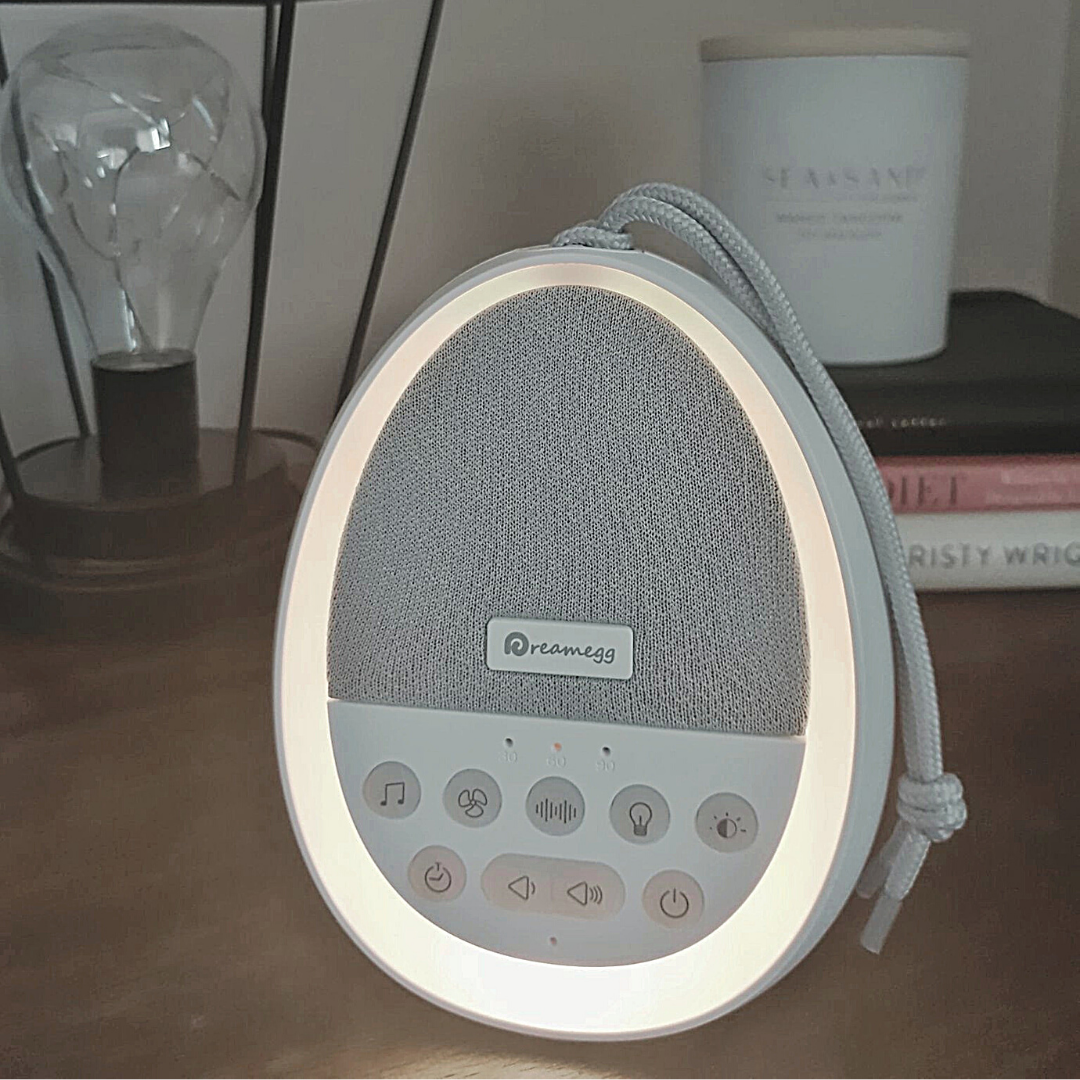|
|Eating Disorders are extremely serious, yet treatable, mental health disorders "that can affect people of every age, sex, gender, race, ethnicity, and socioeconomic group". An estimated 20 million women and 10 million men in the USA will experience an eating disorder during their lifetime.
This article will explore three main types of eating disorders including Anorexia Nervosa, Bulimia Nervosa and Binge Eating Disorder. Be sure to also read the article highlighting the facts about Disordered Eating which is separate from an eating disorder that is diagnosed by a health professional, yet may be precursors to an official diagnosis.
Please note: The information in this article is not medical advice. If you are concerned about your health and well-being, or you are concerned you may have an eating disorder or, if you or someone else is in an immediate crisis situation, reach out to a health professional, crisis line, or your nearest emergency service for more support.
1. Anorexia Nervosa
This type of eating disorder is "characterized by an abnormally low body weight, an intense fear of gaining weight and a distorted perception of weight". An individual diagnosed with Anorexia Nervosa is often preoccupied with having control over their weight which ultimately interferes in extreme and negative ways.
Facts about Anorexia Nervosa:
Some of the typical symptoms of Anorexia Nervosa can include: Physical Extreme fatigue, insomnia, feeling dizzy or fainting spells Severe weight loss, thin appearance, swelling of the arms or legs Soft, downy hair covering the body Abnormal blood count and irregular heart rhythms Dehydration, constipation and abdominal pain Behavioural Excessive exercise Fasting or extreme restricting of food intake Bingeing & self-induced vomiting and the use of laxatives Emotional Irritability, short-fuse Feeling numb or a lack of emotion Social withdrawal including not wanting to eat in front of others Fear of gaining weight that may include repeated weighing or measuring the body Impacts Anorexia Nervosa can result in death even if the individual is not severely underweight. Health complications including abnormal heart rhythms, kidney problems, or and imbalance of fluids can also occur resulting in dangerous health outcomes. An individual diagnosed with Anorexia Nervosa may also be experiencing mental health conditions such as anxiety, depression, OCD, personality disorders, substance disorders, self-injury or suicidal ideation or attempts.
2. Bulimia Nervosa
This type of eating disorder "is characterized by a cycle of bingeing and compensatory behaviors such as self-induced vomiting designed to undo or compensate for the effects of binge eating". An individual diagnosed with Bulimia Nervosa may has excessive worry about their external appearance which can lead to a severely damaged sense of self worth.
Facts about Bulimia Nervosa:
Some of the typical symptoms of Bulimia Nervosa: Physical A sense of loss of control over eating behaviours Swelling in the cheeks and jaw area, discoloured & stained teeth Consuming a large amount of food and ridding the body of food before digestion Stomach issues including gastric reflux or ulcers Behavioural Self-induced vomiting Excessive use of laxatives or diuretics Extreme or prolonged periods of exercising Rituals or schedules dedicated to binge-purge activities Emotional Mood swings, anxiety, depression or other mental health concerns Low self-esteem, self-loathing, negative attitude about self or future Distorted body image leading to sensitivity regarding topics of food or weight Impacts Impulsivity or engaging in risky behaviours Substance abuse separate from using medications for weight loss Self-harming behaviours or suicidal ideation or attempts 3. Binge Eating Disorder
This type of eating disorder is similar to Bulimia Nervosa in that an individual "frequently consume[s] unusually large amounts of food and feel[s] unable to stop eating" but does not purge the consumed food. Binge Eating Disorder can be considered a compulsion that an individual does not have conscious control to stop the behaviours.
Facts about Binge Eating Disorder:
Some of the typical symptoms of Binge Eating Disorder: Physical Health issues including difficulty sleeping or exhaustion More prone to developing diabetes, cardiovascular disease and hypertension Stomach issues, muscle or joint aches and pains Behavioural Continuing to consume food past the point of feeling full Hoarding or hiding food in order to eat large amounts of food when alone Emotional Experiencing stress or anxiety that is relieved by the consumption of food Feeling numb or a lack of affect while bingeing Impacts Substance abuse or misuse Social isolation due to hiding bingeing from others Self-harming behaviours or suicidal ideation or attempts
If you are concerned that you may be experiencing any of the symptoms of an eating disorder, take the first steps to having more support.
Some options include:
Other Articles In This Series About Eating Disorders
References: mayoclinic.org, nationaleatingdisorders.org, nedc.com.au, eatingdisorderhope.com
The links on this page may be embedded with affiliate links that I am compensated for at no additional cost to you. If you or someone you know is in crisis and need immediate support, please reach out to your local emergency service or crisis line.
17 Comments
7/9/2018 12:49:21 pm
This is such an informative post on a very important topic! thanks for sharing you knowledge.
Reply
7/13/2018 12:07:04 pm
You are very welcome! Thank you for stopping by, Erin.
Reply
Mara Olson
7/9/2018 08:11:39 pm
So important to understand our connection with food and how it can be harmful! This is something so many women deal with...
Reply
7/13/2018 12:08:00 pm
Yes, so very true! And many women can be impacted by also all other genders. It can be tough to admit but so important to have help.
Reply
7/10/2018 10:00:22 am
Thank you so much for shedding light on such an important subject Heather. It's imperative that we know more about these kinds of health issues and that anyone experiencing them is empowered with knowledge and able to seek help. I'm so grateful for all that you do ♡.
Reply
7/13/2018 12:09:22 pm
Thank you for your kind comment, Sara. I believe it's important to talk about the tough topics so that anyone reading can know that they aren't alone with what they're going through.
Reply
7/13/2018 12:16:12 pm
For sure, you are very welcome for the information!
Reply
Cynthia @ What A Feeling XOXO
7/10/2018 02:01:33 pm
Wow... super informational and very interesting.
Reply
7/13/2018 12:16:32 pm
I'm glad to hear that this article was informative for you!
Reply
7/10/2018 04:13:44 pm
Informative! As someone who has gone through both anorexia and bulimia, yeahhhhh. These are some serious health and mental issues so thank you for clarifying them :) best, Carly
Reply
7/13/2018 12:17:48 pm
It sounds like you know first hand just how serious these health and mental health concerns can truly be, Carly. Thank you for taking the time to share!
Reply
7/13/2018 12:20:59 pm
Hi Sundaye! Thank you for your kind words about the article and I'm glad to hear you feel like this topic is very important. Thanks for stopping by the blog!
Reply
Sarah
7/18/2018 06:42:53 am
My best friend has an eating disorder and I didn’t understand the difference or realize there were so many types. Thank you for breaking it down.
Reply
7/25/2018 05:23:36 pm
Hi Sarah, I'm glad that this article about eating disorders was helpful for you. The final article in this series will explore ways you can be there to help others so that might also come in handy for you to support your friend.
Reply
10/25/2022 07:10:51 pm
Eating disorders are a major issue that everyone should be aware of and careful about. It may have an impact on the individual experiencing it. It is critical to comprehend what is going on. Knowing how to prevent it and assist those who are affected is critical.
Reply
Your comment will be posted after it is approved.
Leave a Reply. |
Welcome to the blog!↓ That's me, Heather. :)
MENTAL HEALTH RESOURCE VAULTGreat!Check your email for instructions on how to access the Mental Health Resource Vault. Categories
All
Popular Posts// 25 Positive Mindset Quotes
// Self-Care Bullet Journal Spreads // 7 Ways Your Physical Health is Connected to Your Mental Health |
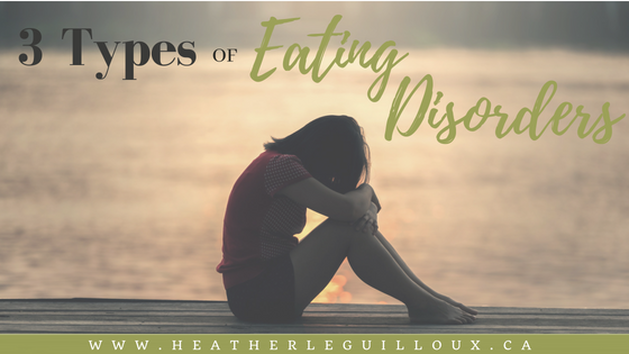

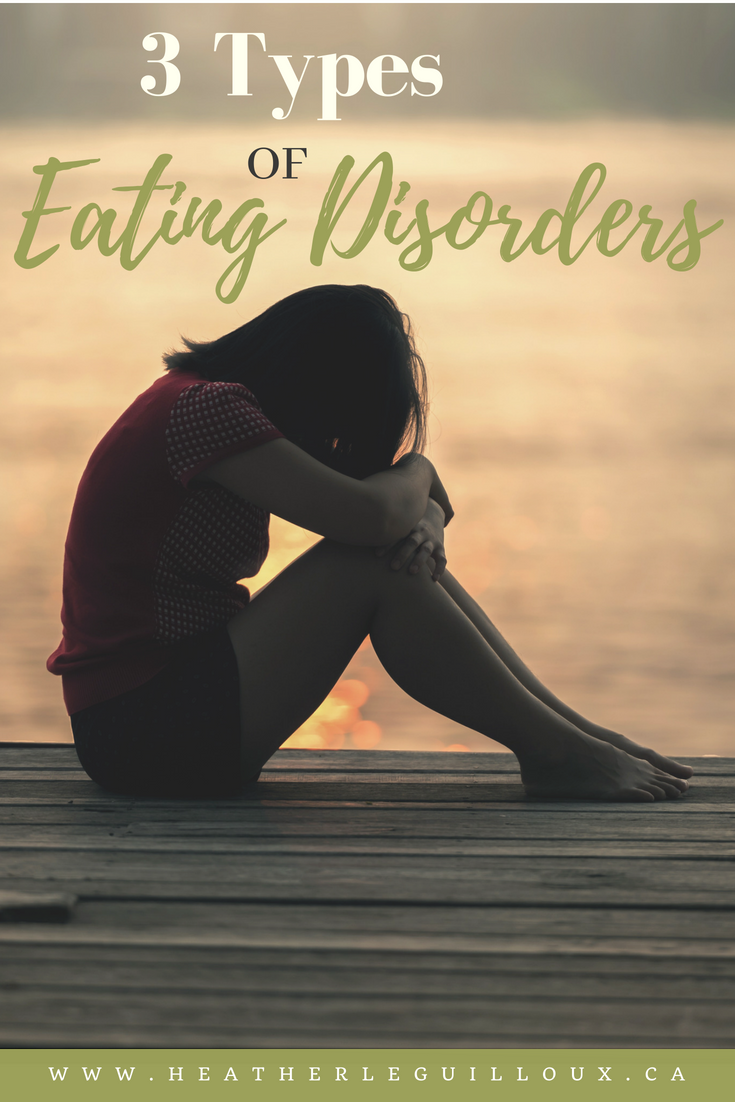
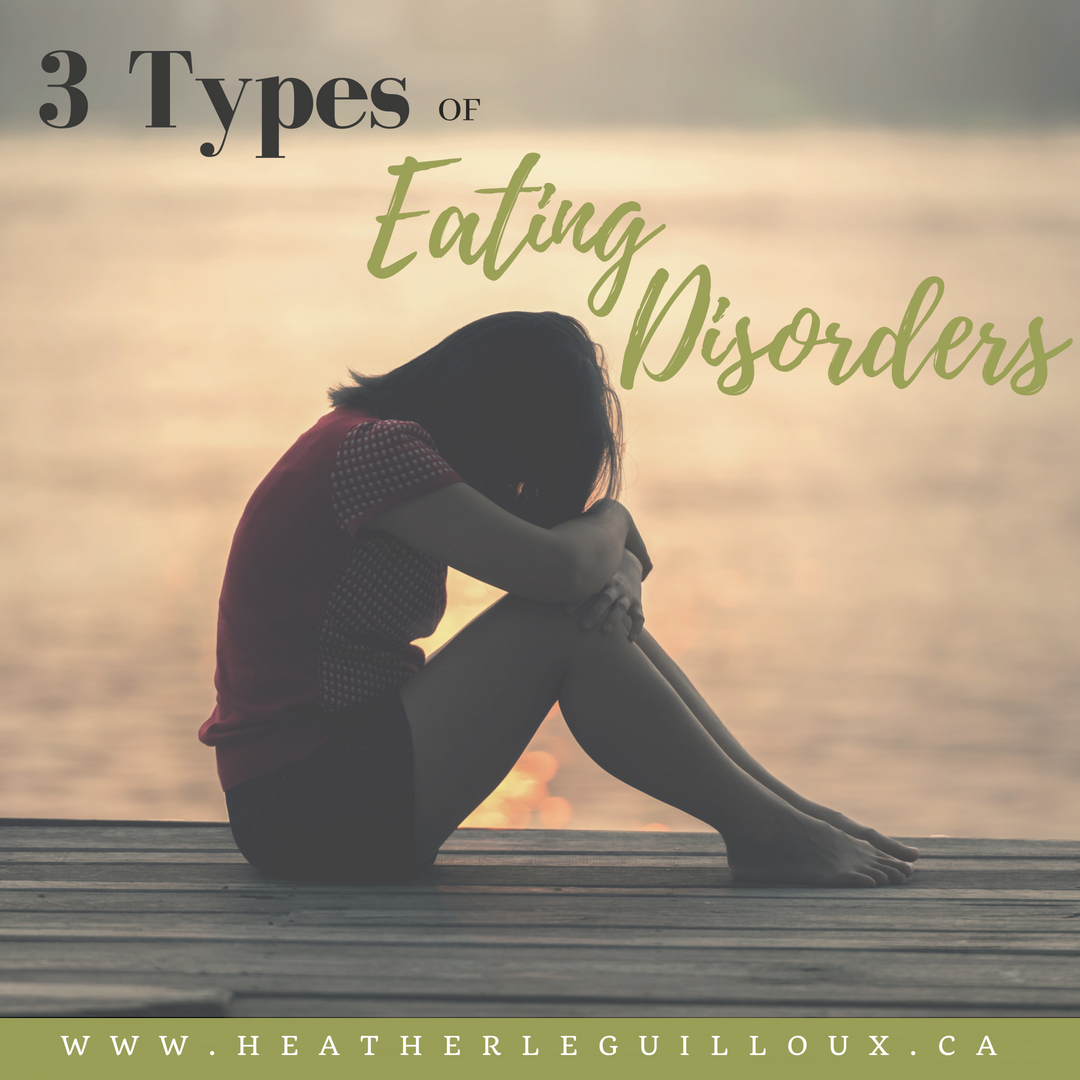
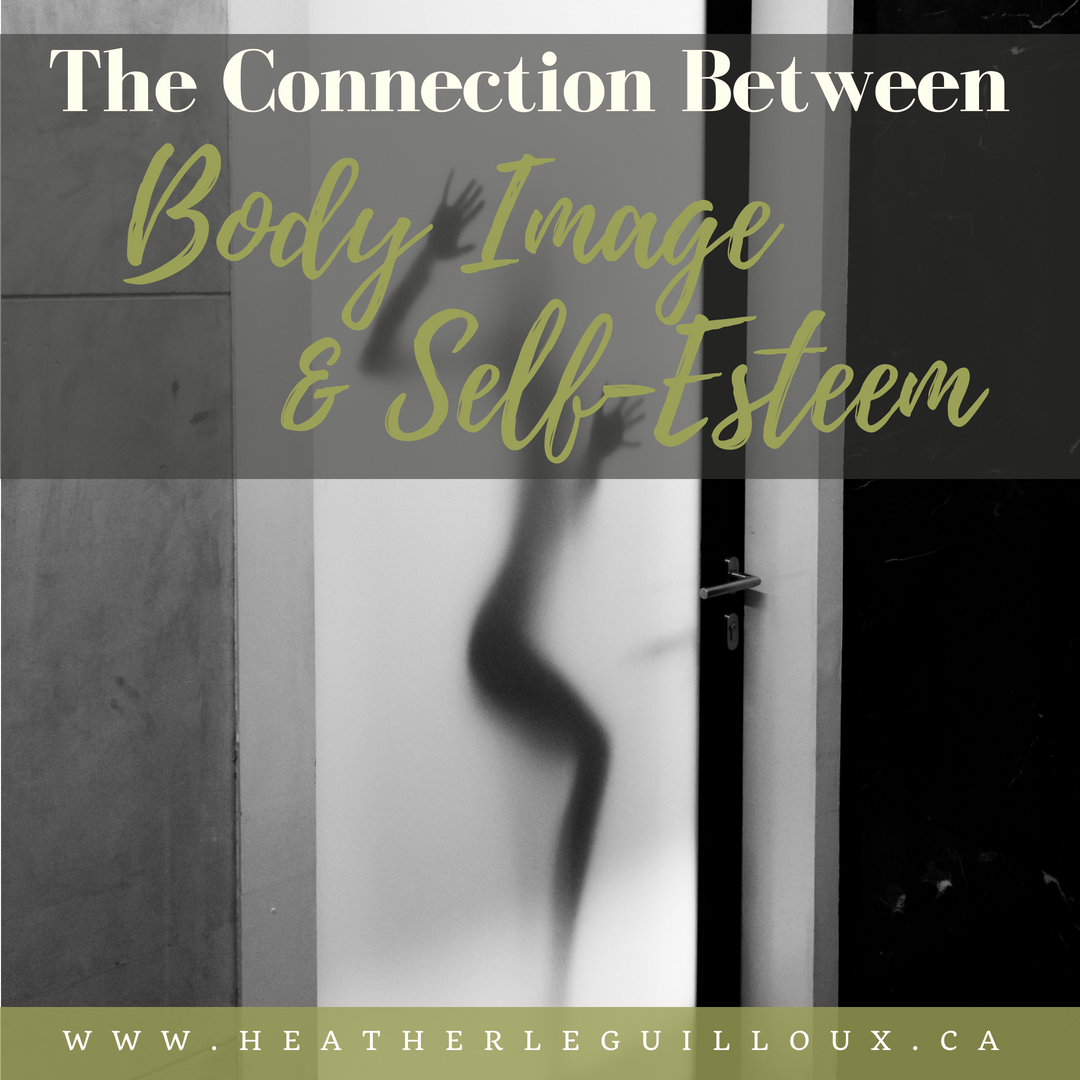


 RSS Feed
RSS Feed











